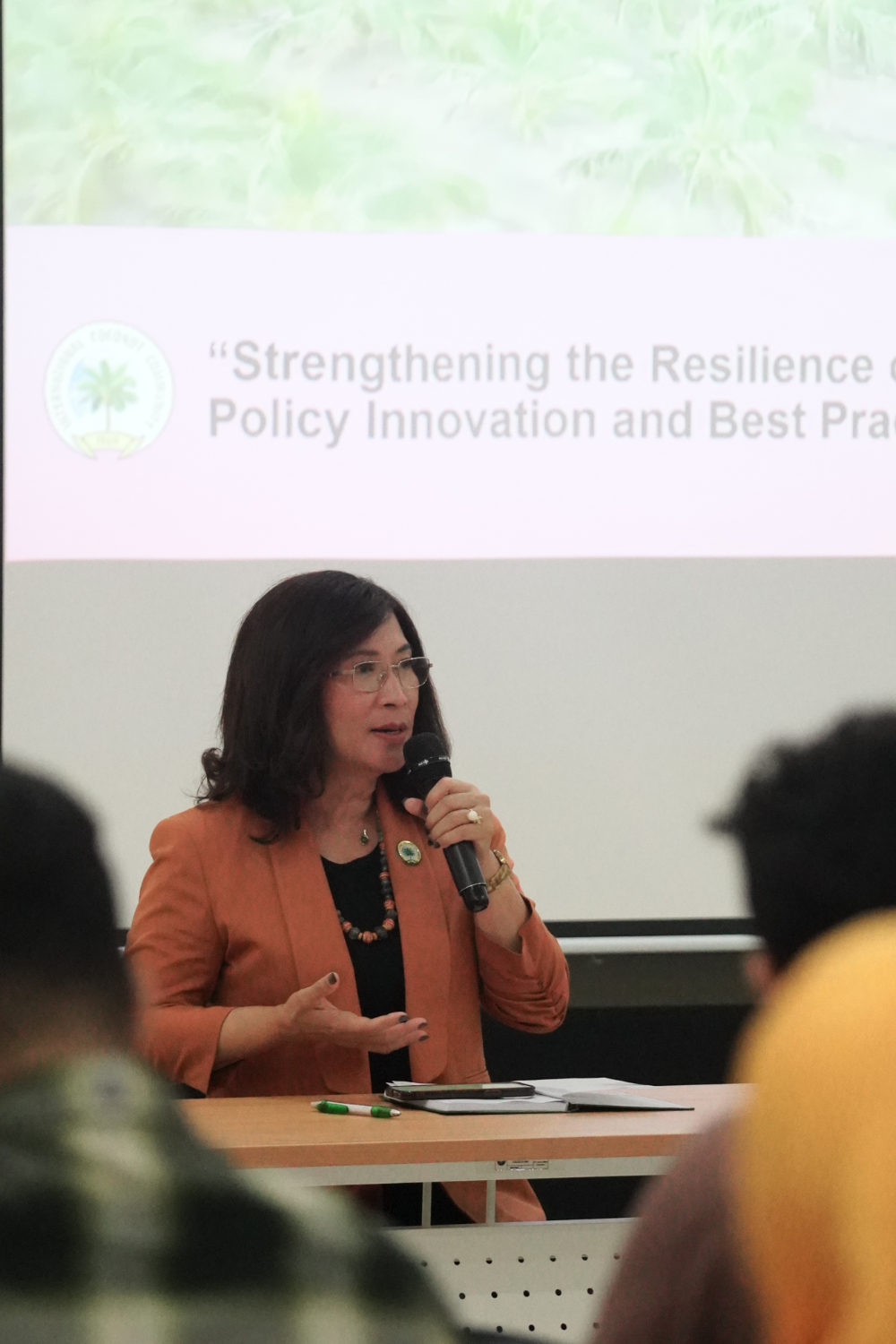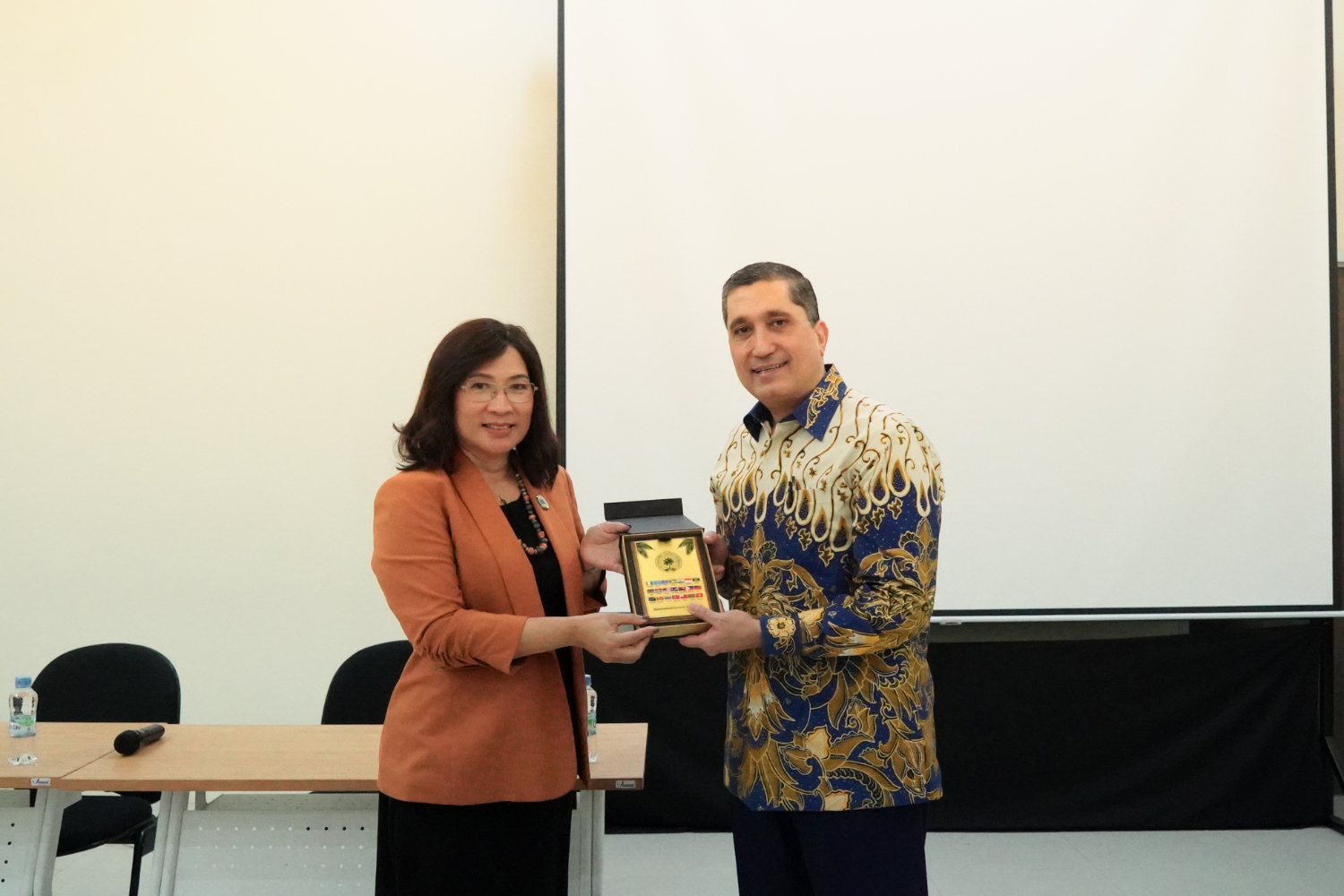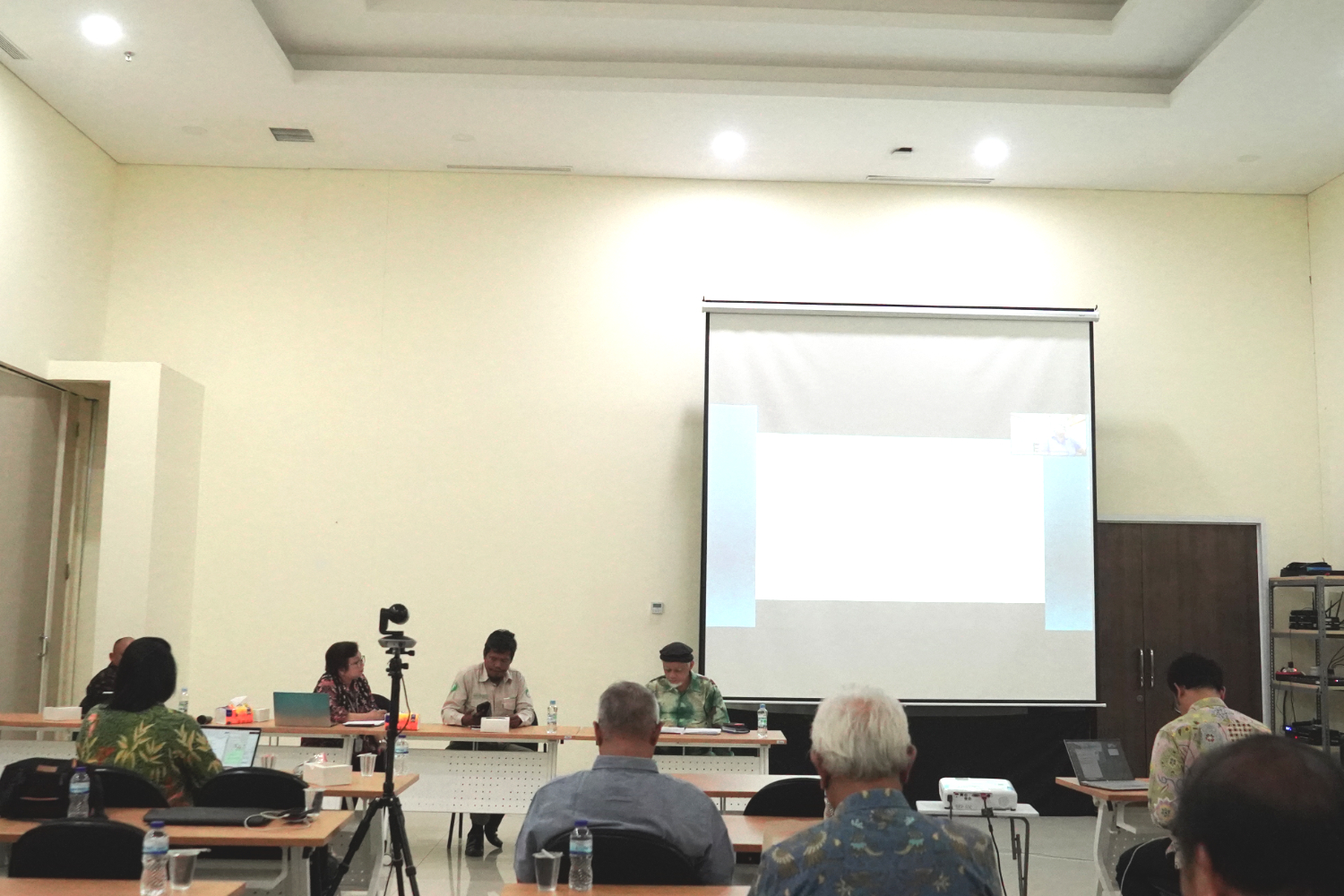A powerful message of science, innovation, and international collaboration echoed at the “Strengthening the Resilience of the Coconut Sector: Policy Innovation and Best Practices in Tissue Culture” seminar held at the Science and Technology Park, IPB University. The event was organized by the Ministry of Foreign Affairs’ Mid-Career Diplomatic School, in collaboration with IPB University, the International Coconut Community (ICC), and Roemah Kelapa. The seminar spotlighted tissue culture as a transformative tool for revitalizing Indonesia’s coconut sector.
H. E. Ambassador Semuel Samson opened the seminar alongside Prof. Dr. Anas Miftah Fauzi, Head of the International Research Institute for Advanced Technology, setting the tone for a day of dynamic exchanges among government officials, academics, industry leaders, and international experts.
In her keynote address, Dr. Jelfina C. Alouw, Director General of ICC, emphasized the strategic importance of biotechnology, particularly tissue culture, for the future of coconut productivity. “Tissue culture,” Dr. Alouw declared, “is not just about knowledge—it is about art.” The sentiment was widely echoed, including by Prof. Sisunandar from Universitas Muhammadiyah Purwokerto, who concurred that successful tissue culture demands intuition, precision, and persistence.

Dr. Alouw also presented a keynote paper and later honored H. E. Ambassador Semuel with a plaque of appreciation—an honor reciprocated by the Ministry in recognition of ICC’s unwavering commitment to coconut development across Asia-Pacific and beyond.
A key highlight of the event was the participation of Dr. Vijitha R. M. Vidhanaarachchi, Head of the Tissue Culture Division of the Coconut Research Institute, Sri Lanka. Joining virtually, Dr. Vijitha delivered a comprehensive technical presentation on recent advances in coconut tissue culture, including the development of clonal propagation protocols using ovary explants—a method described as the best candidate for cloning drought-tolerant and disease-resistant coconut varieties. Other notable speakers included Mr. Bayu Dwi Apri Nugroho from the National Development Planning Agency, Dr. Hengky Novarianto from the Coconut Knowledge Centre, Ms. Jeanette Kumaunang from National Research and Innovation Agency (BRIN), and Dr. Imron Riyadi, M.S,.


The panel discussion sessions featured energetic dialogue and strong alignment across sectors on the need for immediate and tangible government action to scale up coconut tissue culture in Indonesia. Speakers emphasized the importance of policy support, laboratory investments, and collaborative research to ensure successful implementation of biotechnology in the field.
With participants representing ministries, universities, industry stakeholders, and international agencies such as CIRAD, the seminar demonstrated strong multisectoral commitment to implementing the 2025–2045 Coconut Downstreaming Roadmap. Echoing President Prabowo’s Asta Cita Vision and the 2025–2045 Coconut Downstreaming Roadmap, speakers and panel underscored that ensuring sustainability and resilience in the coconut sector requires innovative policy, scientific investment, and strong cross-sector collaboration.
By the end of the seminar, a message was clear: Tissue culture is more than a laboratory method—it is a lifeline for the coconut industry, and its successful adoption will depend on unity, policy synergy, and a willingness to invest in the future.

